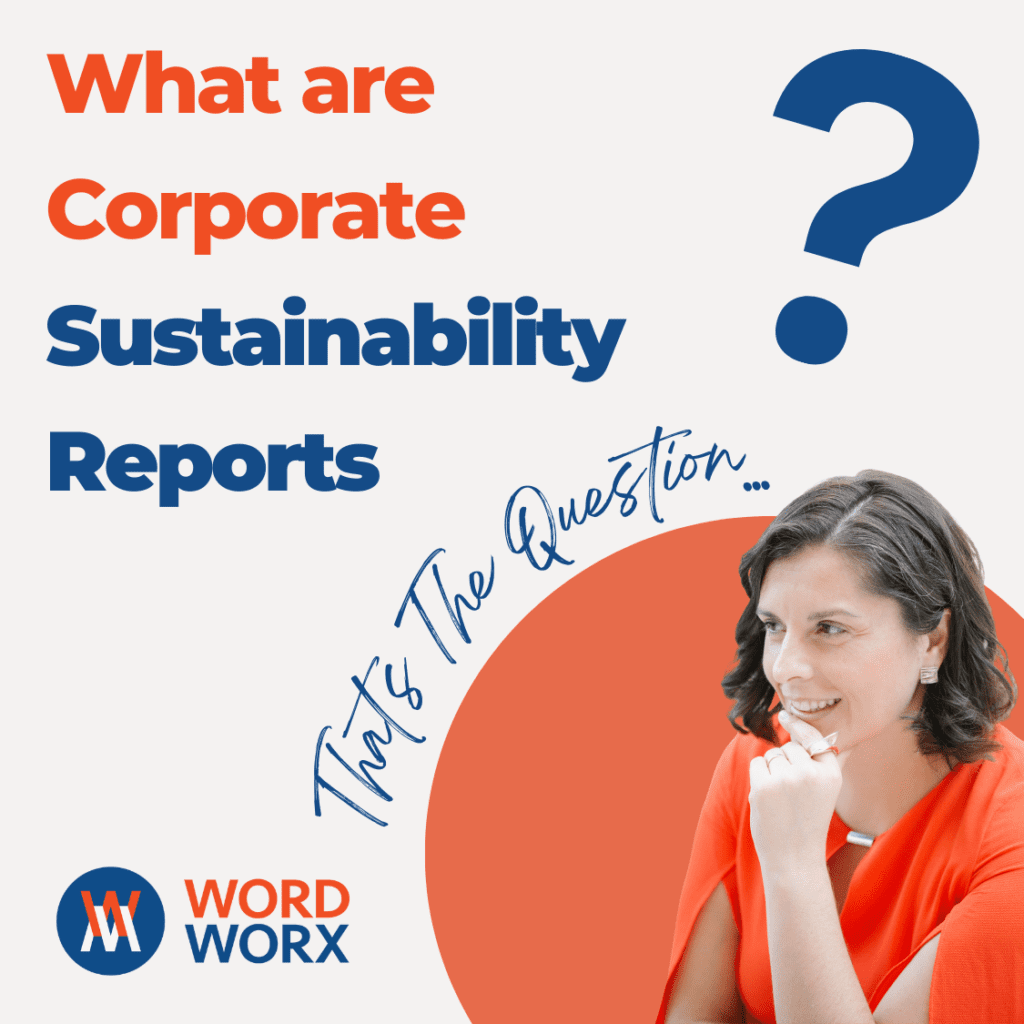Corporate sustainability reports, also known as CSR (Corporate Social Responsibility) reports or ESG (Environmental, Social, and Governance) reports, are becoming increasingly crucial for companies across Europe due to new regulations, namely the European Corporate Sustainability Directive.
Below I’ll provide details of exactly what these types of reports are, their purpose, and details about who writes them.
Definition of Corporate Sustainability Reports
Sustainability Reports are comprehensive documents companies produce to communicate their sustainability performance and initiatives to stakeholders.
These reports provide detailed information about the company’s:
- Environmental impact
- Social responsibility efforts, and
- Governance practices.
Hence, the acronym ‘ESG’ represents each of the above functions.
More specifically, a Corporate Sustainability Report includes a wide range of information, such as the company’s:
- Sustainability goals, strategies, and targets
- Data on energy consumption, greenhouse gas emissions, waste management, water usage, and other relevant environmental metrics.
- Social aspects like labour practices, employee diversity, community engagement, human rights, and philanthropic activities.
- The governance section typically outlines the company’s ethical business practices, board structure, executive compensation, risk management, and compliance with applicable regulations and standards.
What is the Purpose of Writing a Corporate Sustainability Report?
The primary purpose of Sustainability Reports is to enhance transparency and accountability, allowing stakeholders to assess a company’s sustainability performance and progress towards environmental and social goals.
These reports are crucial for investors, customers, employees, regulators, and the wider public to make informed decisions about supporting or engaging with a company based on its sustainability practices.
Reports are also a fantastic marketing tool and can form a coherent part of a company’s overall brand. They can also be a tool for new hires to get potential employees interested in the company’s ESG projects and initiatives.
Who Writes Sustainability Reports?
Sustainability reports are typically written by the company’s internal sustainability or corporate social responsibility (CSR) teams in collaboration with various departments and stakeholders. This is because reports require input and data from multiple areas of the company, including environmental management, human resources, supply chain, finance, and governance.
Writing a sustainability report often involves collecting and analysing data on the company’s environmental and social impacts, setting sustainability goals and targets, and reporting on progress. The sustainability team is responsible for coordinating these efforts, engaging with different departments to gather information, and ensuring the accuracy and completeness of the report.
WordWorx Can Help Write Your Report
Nowadays, many companies request the support of external consultants or sustainability reporting experts to assist. A consultant can provide guidance on best practices, help with structuring the overarching sustainability narrative, and work with the figures and stats obtained internally to create a strong sustainability story.
Contact Elizabeth of WordWorx today (info@elizabethjoss.com) to learn how we can help you compile your upcoming Corporate Sustainability Report.

